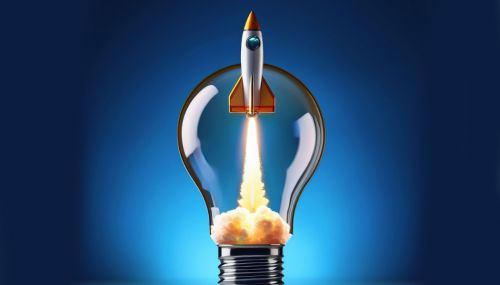All
The Inflation Reduction Act: What’s in it for Heating Fuel Dealers?
by Jim Collura, Sean Cota and Ray Hart, NEFI; Additional reporting by Rick Schweitzer, Anne Steckel and Samuel Diamond

NEFI summarizes “the most impactful piece of federal legislation” in industry history
DISCLAIMER: This article highlights provisions of interest in recently enacted legislation. It is not intended for use as legal or tax guidance. The implications of many of these policies and programs will not be completely evident until they are fully implemented. We recommend that you consult with a qualified attorney or tax professional on how this legislation may affect your business.
The Inflation Reduction Act (IRA), signed into law on August 16, 2022, is the most impactful piece of federal legislation our industry has ever been faced with. Its $369 billion worth of energy and climate policies will have significant implications for your business and reshape the entire U.S. energy market for years if not generations to come.
The NEFI government affairs team has been working for more than 18 months to ensure the best possible outcome for our Main Street family businesses. Since Democrats first began work on this bill in early 2021, we have been in frequent contact with key members of Congress to raise concerns. This includes hundreds of meetings with lawmakers and their staff, and thousands of grassroots letters from NEFI members and supporters calling for fair and sensible energy policies.
As a result, this final iteration is much less harmful than either the initial $6 trillion proposal, or the ill-fated “Build Back Better Act” which passed the House last fall. It opens 700 million acres of federal lands and waters to conventional energy production as a “bridge” to a lower-carbon future; allows biofuel-compatible furnaces and boilers to compete for the bill’s new home energy efficiency tax incentives; and provides $500 million for downstream biofuel infrastructure grants at fuel terminals and heating oil distribution facilities.
Not all our concerns have been addressed. As they say in Washington, “there are no defeats, only setbacks.” The November election is just around the corner and a new Congress is on the horizon. This could present new opportunities to address harmful policies and enhance the competitiveness of our low-cost climate solution for consumers. Rest assured, NEFI will continue to fight for you.
In the meantime, we must prepare our businesses for the challenges and opportunities presented by the IRA. Here are several ways your business can prepare.
1) Familiarize yourself with the details of the IRA by reading this article as well as NEFI’s detailed summary available online. Have a conversation with your management team, as well as your company’s tax and legal professionals, about how to best prepare for the changes to come.
2) Register for the upcoming HEAT Show at heatshow.com/attend. This year’s Management Track sessions and must-attend Industry Summit will provide in-depth discussions of this legislation, the upcoming election, and the implications for our industry (Editor’s note: for additional details, see "Industry Summit IV preview").
3) Please consider contributing to NEFI’s Advocacy Fund at nefi.com/donate. These funds keep the NEFI team in the field, on the job, and fighting for you. Your support is needed now more than ever.
Make no mistake. Our businesses face unprecedented challenges, but also extraordinary opportunities. Time and time again, this industry has proven to be adaptable and resilient. We urge you to seize the opportunities before you and pave a brighter future for your hardworking employees and loyal customers.
Tax Credits for Efficient Heating Equipment
The IRA extends and expands the IRS section 25C tax credit for certain home energy efficiency improvements through 2023 and increases it from 10% to 30% of the cost of installation. The new law eliminates the existing $500 lifetime cap on the 25C credit and replaces it with an annual limit of $1,200 for all improvements to a home, including installation of qualified heating or cooling systems. For improvements involving a heat pump system or biomass stove, the overall limit increases to $2,000.
NEFI and the Oilheat Manufacturers Association proposed language that made its way into the final bill, providing tax incentives for the installation of high-efficiency oil-fired heating equipment. According to this language, an oil-fired boiler, water heater or furnace placed into service between January 1, 2023 and December 31, 2026 qualifies for a tax credit of up to $600 if the appliance meets 2021 Energy Star® criteria — 87 AFUE for boilers and water heaters, 85 AFUE for furnaces — and is rated by the manufacturer for use with renewable fuel blends of 20% or more. Beginning January 1, 2027, oil-fired boilers, water heaters and furnaces must achieve at least 90 AFUE and be rated for blends of 50% or more to qualify for the credit.
The eligibility of “biofuel compatible” heating systems for these tax incentives represents a significant victory for users, installers and manufacturers of these systems. Inclusion of “renewable fuel blends” by Congress signals an acknowledgement that liquid heating fuels offer a readily available solution to both improve home energy efficiency and reduce greenhouse gas emissions – a significant achievement with potential long-term implications for our industry.
NEFI members should be prepared to take advantage of this credit when it takes effect in January, especially since separate rebate programs for residential electrification (details below) will take time to set up. Also, unlike current law, the 25C tax credit “resets” every year. This means a homeowner can claim a credit of up to $1,200 each year through 2031 and provides opportunities for additional improvements to a customer’s home in successive years.
Blending Infrastructure Grants
The IRA provides $500 million over 10 years for the U.S. Department of Agriculture’s Higher Blends Infrastructure Incentive Program (HBIIP). Since its enactment in 2020, the HBIIP has awarded over $11 million to nine heating fuel suppliers in six Northeast states for projects expected to increase annual biodiesel sales in the region by 474 million gallons.
As amended by the IRA, the HBIIP provides “home heating oil distribution centers or equivalent entities” with grants of up to 75% of project costs for blending, storing, supplying, or distribution of biofuels. This is a substantial increase from the previous iteration of the program, which provided grants for 50% of project costs.
The infrastructure must support biodiesel blends of at least 20% and may include “installing, retrofitting, or otherwise upgrading fuel dispensers or pumps and related equipment, storage tank system components, and other infrastructure” related to dispensing of biofuels.
This provision is based on NEFI-backed legislation offered by Senators Amy Klobuchar (D-MN) and Joni Ernst (R-IA) and Representatives Cindy Axne (D-IA) and Rodney Davis (R-IL). NEFI is pleased this legislation was included in the IRA. The USDA is currently taking applications for grants under the previous iteration of the program, with a deadline of 4:30 p.m. Eastern Time on November 21, 2022. We strongly encourage wholesale and retail fuel marketers to apply for these grants. For details, visit rd.usda.gov/hbiip.
Furthermore, as with the inclusion of “renewable fuel blends” in rebates for oil-fired heating appliances, this provision is significant because it codifies into law the role that heating oil suppliers play in delivering higher blends of biofuels, essentially saving us a seat at the table.
Renewable & Alternative Fuel Tax Incentives
The IRA extends through 2024 the blender credit for biodiesel, Bioheat® fuel and renewable diesel; the producer credit for cellulosic biofuels such as ethyl levulinate (EL); and use of propane as an alternative transportation fuel. These tax credits are widely considered integral to continued operation and growth of renewable fuels, as they provide financial incentives that make these fuels cost-competitive with petroleum products.
Both the heating oil and propane industries have embraced renewable fuels as a solution to deliver immediate and significant emission reductions on a path to net-zero. These tax credits help to ensure biodiesel, renewable diesel, renewable propane, and EL will be available to meet our industry’s growing need for readily deployable low-carbon home heating solutions.
The IRA also creates a sustainable aviation fuel (SAF) credit through 2024 starting at $1.25 per gallon for fuels that achieve a 50% reduction in GHG emissions, with an additional $0.01 for each additional percent up to $1.75. Beginning January 1, 2025, all federal tax incentives for renewable and alternative fuels will be consolidated under a single producer tax credit with a base value of $0.20 per gallon — or $.035 for SAF — with further adjustments based on the fuel’s “emissions factor.” A higher amount of $1.00 per gallon ($1.75 for SAF) is offered if certain prevailing wage and apprenticeship requirements are met.
The IRA seeks to make more renewable fuels available to the aviation market. In the short term, this is believed to have nominal impact on heating sector. Future demand for renewable fuels and related feedstocks in the aviation sector may have longer-term implications across all sectors. NEFI is working with the National Oilheat Research Alliance and partners in the renewable fuels industry to assess short-term and long-term impacts, both positive and negative.
Additionally, NEFI has warned Congress that the plan to shift from the existing blender credit to a complex new producer credit in 2025 will harm marketers that are investing millions of dollars in downstream biofuel blending and storage. We alerted Northeast lawmakers that establishing a credit only for domestic biofuel production will discourage imports of biofuels from Canada and other U.S. trade partners and restrict regional fuel supplies. It is also possible this policy may violate World Trade Organization rules.
Electrification Rebate Program
Perhaps most concerning to some NEFI members and supporters is the prevalence of building electrification subsidies in the IRA. The bill provides states $4.275 billion to create electrification rebate programs for single-family homes and multifamily buildings.
Only low-to-moderate-income households are eligible for rebates under this section. This is defined as less than 150% of an area’s local median income.
The electrification programs will offer point-of-sale rebates for Energy Star certified appliances, including $8,000 for a heat pump for space heating or cooling, $1,750 for a heat pump water heater, and $840 for an electric stove, range, oven or heat pump clothes dryer. The program will also offer “non-appliance” rebates of $4,000 for an electric load service center upgrade, $1,600 for insulation, air sealing, and ventilation, $2,500 for electric wiring, and up to $500 to cover installation costs.
The total aggregated rebate is capped at 50% of the project cost for households earning 80% to 150% of local median income. This increases to 100% of the cost for households below 80% of local median income. The total rebate amount may not exceed $14,000 (regardless of income). The project must be for new construction, the replacement of an existing appliance, or the installation of an appliance that did not previously exist in the home or building. Note: It appears that a qualified non-appliance upgrade may be eligible for a rebate, irrespective of whether it is done in conjunction with the installation of an electric appliance.
Funding for this new rebate program is 25% lower than the House-passed “Build Back Better Act” and 50% lower than the original draft bill. After removing administrative costs (3% for the federal government and 20% for states), the total amount of funding for rebates is $3.46 billion over 10 years. Even if a $14,000 rebate were sent to all U.S. homes that heat with fossil fuels, irrespective of household income, the total cost would be $980 billion – 280 times the amount of rebate funding provided under this bill. Still, these provisions establish a new precedent of federal support for and subsidization of residential electrification.
Whole-Home Rebates
The IRA also supports a separate rebate program for whole-home efficiency improvements that result in at least 15% energy savings. Like the electric home rebate program, these rebates are administered by the states. They provide single-family homes up to $2,000 for projects that result in energy savings of 20% to 34% (up to $200,000 for multifamily buildings) and up to $4,000 for proven energy savings of 35% or more. The rebate amount is doubled for households at or below 80% of local median income and for multifamily buildings that are at least 50% occupied by such households. It is also important to note these rebates are “technology neutral.”
These new efficiency rebates may not be combined with the home electrification rebates for the same project. They may, however, be offered in conjunction with the bill’s expanded 25C tax credits for home energy improvements, including incentives for the installation of high-efficiency oil-fired heating equipment.
What’s Next?
Implementation and administration of this sweeping legislation will take some time. This is especially true of the new state rebate programs. The IRS will need to issue guidance regarding modified and expanded tax incentives, including the 25C tax credits for home efficiency improvements. Future legislation may be necessary to make corrections or modifications to this new law, and if Republicans regain control of Congress they could even delay or repeal certain provisions.
NEFI will continue to fight for its members during the implementation process and future legislative actions. We will also provide additional resources for our members and fellow industry stakeholders to educate them about the opportunities available under the Inflation Reduction Act, as well as potential challenges. Look for announcements in future issues of Oil & Energy and NEFI’s weekly e-newsletter, NEON.
Sean Cota is NEFI President & CEO, Ray Hart is NEFI Chairman, and Jim Collura is NEFI Vice President & Director of Government Affairs. They can be reached at sean.cota@nefi.com, chair2022@nefi.com, and jim.collura@nefi.com, respectively.
Related Posts
 From Retailer to Representative: Chris Keyser’s Road to the Vermont State House
From Retailer to Representative: Chris Keyser’s Road to the Vermont State House
Posted on June 16, 2025
 Northeast Working Group for Industry Principles Gets to Work
Northeast Working Group for Industry Principles Gets to Work
Posted on May 8, 2025
 Trump Policies and Energy Markets
Trump Policies and Energy Markets
Posted on April 28, 2025
 NEFI Introduces the National Home Comfort PAC
NEFI Introduces the National Home Comfort PAC
Posted on April 28, 2025
Enter your email to receive important news and article updates.
